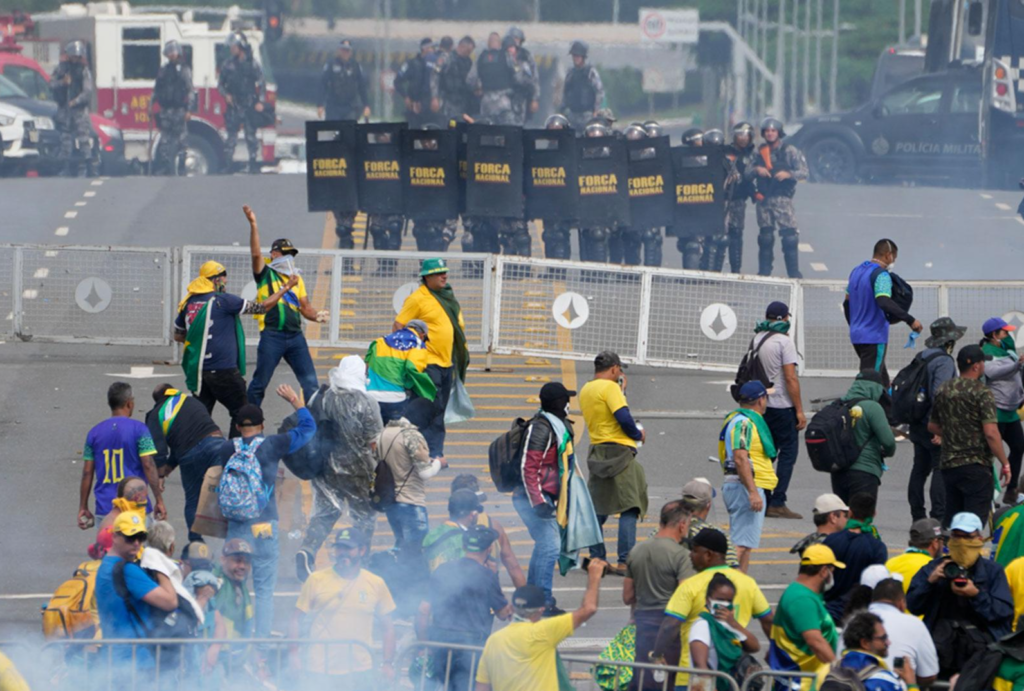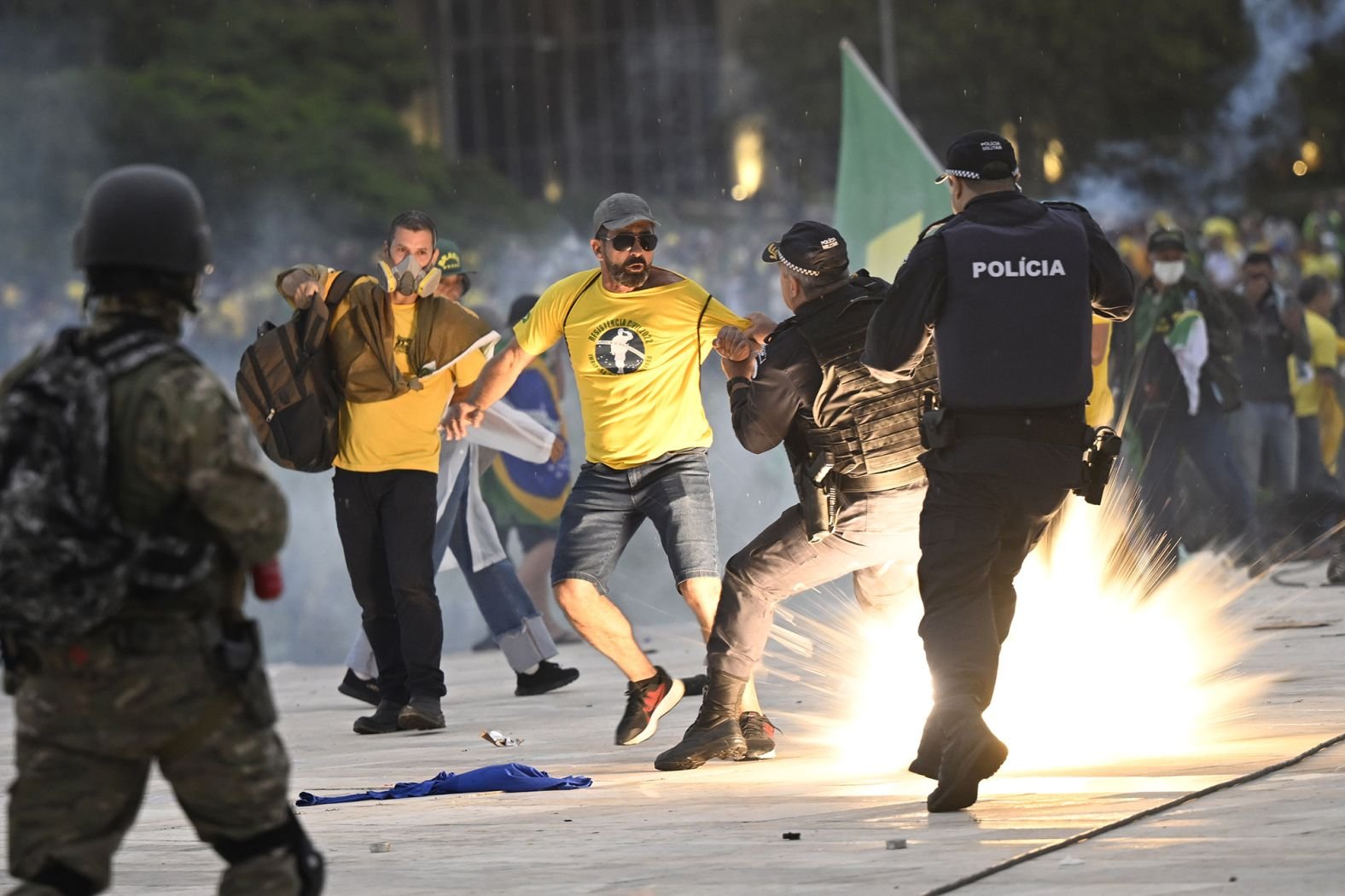The recent invasion of Brazil’s National Congress, the Planalto Palace, and the Supreme Court by supporters of former President Jair Bolsonaro on January 8, 2023, marks a significant moment in the political landscape of the country. These far-right groups, in defiance of the electoral results and with calls for military intervention, represent a serious threat to democratic institutions and the rule of law. However, the response to such an event must be carefully considered, particularly by labor, student, and popular movements that have traditionally opposed both state repression and far-right extremism.
It is important to clarify that the working class does not defend the bourgeois state’s institutions out of a vested interest in their preservation. Rather, this is a defense against an attack from far-right elements that aim to dismantle these institutions to replace them with something far worse—an authoritarian regime aligned with the reactionary, anti-democratic values espoused by Bolsonaro’s supporters. These extreme right-wing groups, whose actions include the destruction of property and adventurism, have no resemblance to the methods traditionally used by the working class in their struggle for rights and representation.
The events of January 8 were clearly facilitated by the collusion of state security forces. The protesters, arriving in Brasília in approximately 100 buses, were escorted to the Praça dos Três Poderes by the Military Police of the Federal District, and footage from the day shows police officers fraternizing with the demonstrators and offering little resistance to their invasion. This stands in stark contrast to how police forces have responded to previous popular mobilizations. For example, during the 2017 protests against labor reforms introduced by the Temer government, a heavy police presence deployed tear gas, rubber bullets, and even helicopters in a show of force designed to suppress workers and youth mobilizing against government policy. Such a disparity in treatment underscores the political sympathies within certain elements of the state apparatus, which seem to align more closely with the far-right than with the working class.
The current situation demands that the working class and youth in Brazil rely on their own strength, unity, and independent mobilization rather than trusting in the same state institutions that have allowed these far-right groups to flourish. The Lula-Alckmin administration, formed as a coalition government with elements of the capitalist class, has taken a conciliatory stance toward the right, including offering positions within the cabinet to figures with questionable affiliations. The Minister of Defense, José Múcio, downplayed the seriousness of the Bolsonarista camps set up outside military barracks, describing them as an “expression of democracy,” despite their explicit calls for military intervention. This reflects the precariousness of a government that extends overtures to the far-right in the name of national unity, while simultaneously undermining the integrity of its own democratic mandate.

In order to defeat these far-right forces and prevent future attempts at destabilizing the country, it is crucial for trade unions, student groups, and popular organizations to mobilize. The Brazilian working class and youth must take the lead in organizing assemblies, strikes, and protests across workplaces, schools, universities, and neighborhoods. The demand for the removal of Bolsonarista figures from positions of influence within the government must be met with equal fervor, ensuring that the legacy of the far-right is politically dismantled and that Bolsonaro’s supporters are prevented from further undermining the democratic process.
Organizations such as the Trade Union Confederation (CUT) and other labor and student movements have a responsibility to coordinate national mobilizations aimed at defeating the far-right. These groups must organize resistance not only against the reactionary forces attempting to disrupt the nation’s stability, such as those seeking to blockade roads or occupy oil refineries, but also against any attempts to roll back the rights and gains won by the working class in previous struggles.

The pathway forward requires a firm and independent mobilization of the working class to achieve meaningful change. This includes repealing the regressive policies enacted by previous governments and advancing a political agenda that truly reflects the needs and aspirations of Brazil’s workers and marginalized communities. Through coordinated efforts and mass mobilizations, the right-wing threat can be countered, opening the door for real progress in addressing the pressing issues facing the country today.
In conclusion, the events of January 8, 2023, serve as a reminder of the ongoing political struggle in Brazil. To successfully combat the far-right and ensure the protection of democratic principles, the working class and youth must take an active and organized role in shaping the nation’s future. By harnessing their collective power, they can effectively resist the reactionary forces at play and push for a Brazil that prioritizes social justice, equality, and the rights of all its citizens.

